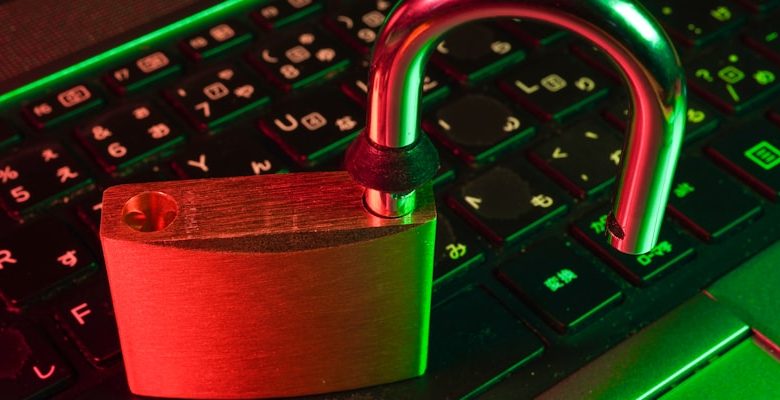How to Educate Yourself on Crypto Security Best Practices

- Understanding the importance of crypto security
- Common threats to crypto security and how to prevent them
- Choosing the right hardware wallet for storing your cryptocurrencies
- Best practices for creating and managing secure passwords
- The role of two-factor authentication in protecting your crypto assets
- Educational resources for staying up-to-date on crypto security trends
Understanding the importance of crypto security
Cryptocurrency security is of utmost importance in the digital age we live in. With the rise of cyber threats and hacking incidents, it is crucial for individuals to understand the significance of securing their crypto assets. By educating yourself on best practices for crypto security, you can protect your investments and safeguard your financial future.
One key aspect of crypto security is the use of secure wallets to store your digital assets. Hardware wallets, such as Ledger or Trezor, provide an extra layer of protection against online threats. These wallets keep your private keys offline, making it harder for hackers to access your funds. By using a secure wallet, you can mitigate the risk of losing your cryptocurrencies to cyber attacks.
Another important consideration for crypto security is the use of strong passwords and two-factor authentication. By creating complex passwords that include a mix of letters, numbers, and special characters, you can make it harder for hackers to guess your login credentials. Additionally, enabling two-factor authentication adds an extra layer of security to your accounts, requiring a second form of verification to access your funds.
Common threats to crypto security and how to prevent them
When it comes to crypto security, there are several common threats that users need to be aware of in order to protect their assets. One of the most prevalent threats is phishing attacks, where scammers try to trick individuals into revealing their private keys or passwords through fake websites or emails. To prevent falling victim to phishing attacks, always double-check the URL of the website you are visiting and never click on suspicious links.
Another significant threat to crypto security is malware, which can infect your device and steal sensitive information such as your wallet files. To mitigate this risk, make sure to regularly update your antivirus software and avoid downloading files or programs from untrustworthy sources. Additionally, using a hardware wallet can provide an extra layer of protection against malware attacks.
Social engineering is also a common tactic used by hackers to gain access to your crypto assets. This involves manipulating individuals into divulging confidential information or granting access to their accounts. To safeguard against social engineering attacks, never share your private keys or passwords with anyone, and be cautious of unsolicited requests for personal information.
Choosing the right hardware wallet for storing your cryptocurrencies
When it comes to securing your cryptocurrencies, using a hardware wallet is often considered one of the safest options available. These physical devices store your private keys offline, making it much harder for hackers to access your funds. However, with so many options on the market, it can be overwhelming to choose the right one for your needs. Here are some factors to consider when selecting a hardware wallet:
- Security: Look for a hardware wallet that offers advanced security features such as PIN protection, passphrase support, and secure element technology.
- Supported cryptocurrencies: Make sure the hardware wallet you choose supports the cryptocurrencies you plan to store.
- User interface: Consider the ease of use and user interface of the hardware wallet, as you want to be able to access your funds quickly and easily.
- Reputation: Research the reputation of the hardware wallet manufacturer to ensure they have a track record of security and reliability.
- Price: Compare the prices of different hardware wallets, but remember that the security of your funds is the most important factor to consider.
By taking the time to research and choose the right hardware wallet for your needs, you can ensure that your cryptocurrencies are stored securely and protected from potential threats. Investing in a high-quality hardware wallet is an important step in securing your digital assets for the long term.
Best practices for creating and managing secure passwords
When it comes to keeping your crypto assets secure, creating and managing strong passwords is essential. Follow these best practices to ensure your accounts are well-protected:
- Use a mix of uppercase and lowercase letters, numbers, and special characters in your passwords to increase their complexity.
- Avoid using easily guessable information such as your name, birthdate, or common words as part of your password.
- Make sure your passwords are at least 12 characters long to provide an added layer of security.
- Consider using a password manager to store and generate unique passwords for each of your accounts.
- Enable two-factor authentication whenever possible to add an extra step to the login process.
By following these guidelines, you can significantly reduce the risk of unauthorized access to your crypto holdings. Remember, the security of your passwords plays a crucial role in safeguarding your investments.
The role of two-factor authentication in protecting your crypto assets
One of the most important security measures you can take to protect your cryptocurrency assets is to enable two-factor authentication (2FA) on all of your accounts. 2FA adds an extra layer of security by requiring not only a password and username but also something that only the user has on them, i.e., a piece of information only they should know or have immediately to hand – such as a physical token. This greatly reduces the chances of unauthorized access to your accounts.
Educational resources for staying up-to-date on crypto security trends
Staying informed about the latest crypto security trends is crucial in protecting your digital assets from potential threats. Fortunately, there are numerous educational resources available to help you stay up-to-date on best practices for keeping your crypto investments secure.
- One valuable resource is online courses offered by reputable platforms such as Coursera, Udemy, and Khan Academy. These courses cover a wide range of topics related to crypto security, including encryption techniques, secure storage methods, and common cyber threats.
- Another great way to stay informed is by following blogs and websites dedicated to crypto security. Websites like CoinDesk, Cointelegraph, and CryptoSlate regularly publish articles on the latest security trends and best practices.
- You can also join online forums and communities focused on crypto security, such as Reddit’s r/CryptoCurrency and Bitcointalk. These platforms allow you to engage with other crypto enthusiasts and security experts to share knowledge and stay informed.
- Attending crypto security conferences and webinars is another effective way to educate yourself on the latest trends. Events like Black Hat and DEF CON offer valuable insights from industry experts and provide networking opportunities with like-minded individuals.
By taking advantage of these educational resources, you can enhance your knowledge of crypto security best practices and better protect your investments in the ever-evolving digital landscape.



